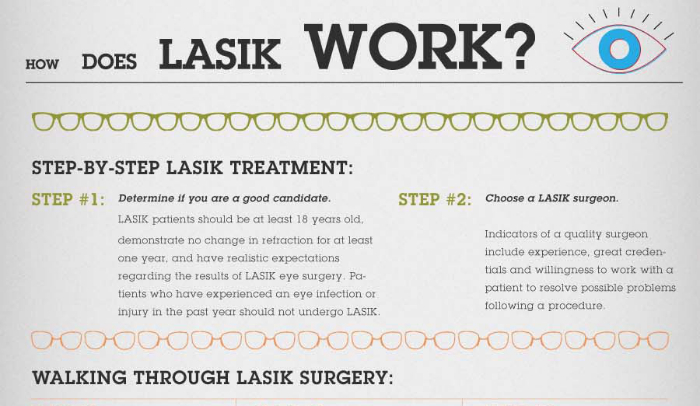Not Sure About SMILE Surgery? Explore Crucial Variables And Understandings That Will Assist You In Making A Knowledgeable Choice Concerning Your Vision's Future
Not Sure About SMILE Surgery? Explore Crucial Variables And Understandings That Will Assist You In Making A Knowledgeable Choice Concerning Your Vision's Future
Blog Article
Short Article Produced By-Banke Mooney
If you're considering SMILE eye surgical procedure, contemplate this: are you prepared to embrace potential aesthetic flexibility, or does the thought of any threats make you hesitate? Your choice will depend upon a cautious equilibrium of weighing the advantages versus the uncertainties. It's essential to dig deeper into the subtleties of SMILE surgery to make an informed option that straightens with your visual goals.
Understanding SMILE Eye Surgical Procedure
When considering SMILE Eye Surgical procedure, it's important to recognize the procedure and its benefits. what is the procedure code for cataract surgery , which represents Tiny Cut Lenticule Removal, is a minimally invasive laser eye surgical procedure that corrects usual vision issues like nearsightedness (nearsightedness).
Throughout the treatment, your eye doctor will certainly utilize a femtosecond laser to produce a little cut in your cornea. Through this cut, a small disc of tissue called a lenticule is eliminated, improving the cornea and fixing your vision.
Among the crucial advantages of SMILE Eye Surgical procedure is its quick recuperation time. Numerous clients experience improved vision within a day or two after the treatment, with marginal discomfort.
Additionally, SMILE is recognized for its high success rate in supplying lasting vision modification. Unlike LASIK, SMILE doesn't call for the creation of a flap in the cornea, decreasing the danger of issues and permitting a more secure corneal framework post-surgery.
Comprehending cataract surgery assistance and its advantages is important when thinking about SMILE Eye Surgical procedure for vision improvement.
Benefits and drawbacks of SMILE
Considering SMILE Eye Surgical treatment for vision correction comes with numerous benefits and prospective drawbacks.
One of the primary pros of SMILE is its minimally intrusive nature, as it includes a small incision and commonly results in quick recuperation times. The procedure is also recognized for causing marginal pain and dry eye signs and symptoms post-surgery contrasted to other vision improvement approaches. Additionally, SMILE has been revealed to supply outstanding aesthetic outcomes, with several clients attaining 20/20 vision or far better.
On the other hand, a possible disadvantage of SMILE is that it may not appropriate for individuals with serious refractive mistakes, as the therapy variety is somewhat limited contrasted to LASIK. Another factor to consider is that the knowing curve for cosmetic surgeons carrying out SMILE can influence the availability of skilled service providers in specific locations.
It is necessary to evaluate these benefits and drawbacks meticulously when deciding if SMILE is the appropriate option for your vision improvement demands.
Identifying Eligibility for SMILE
To identify if you're qualified for SMILE eye surgical procedure, your eye doctor will carry out an extensive evaluation of your eye health and wellness and vision requirements. Throughout this assessment, factors such as the stability of your vision prescription, the thickness of your cornea, and the overall health and wellness of your eyes will be assessed.
Normally, prospects for SMILE are over 22 years of ages, have a steady vision prescription for a minimum of a year, and have healthy and balanced corneas without problems like keratoconus.
Your optometrist will additionally consider your total eye health, any existing eye problems, and your way of life requires to determine if SMILE is the best option for you. It's essential to connect any type of certain aesthetic needs or issues you may have throughout this examination to make certain that the therapy aligns with your expectations.
If you aren't qualified for SMILE, your optometrist may recommend alternate vision improvement alternatives that much better fit your specific demands and eye health and wellness status.
Final thought
Ultimately, making a decision whether SMILE eye surgical procedure is right for you needs careful consideration of your individual eye health and wellness and aesthetic needs. Speak with your eye doctor to establish your qualification for the procedure and evaluate the prospective advantages and drawbacks. Bear in mind to interact any kind of worries or concerns you may have throughout the analysis process to make an enlightened decision about your vision improvement choices.
